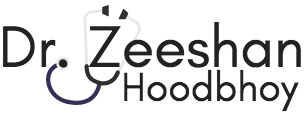Many people mistakenly believe tuberculosis (TB) is a thing of the distant past. Believe it or not, 1.7 million people have a latent form of TB right now, and many of them don’t even know they have it. In this article, we’ll go over what TB is, the symptoms you need to look out for, and standard treatment procedures.
What Is TB?
TB gets its name from the bacterial strain Mycobacterium tuberculosis. Most often this bacteria works its way into a TB patient’s lungs, but it could also get into other vital organs like the kidneys and brain. This disease mainly spreads from active patients to other people via airborne bacteria.
There are two major types of tuberculosis: active and latent. People with latent TB don’t have symptoms and can’t spread the disease to others. Active TB, on the other hand, is contagious and life threatening if not addressed quickly. It’s important to note, however, that latent TB can change over to active TB at any moment. This is why people who believe they’ve been exposed to TB must get an appropriate scan at their doctor’s office even if they don’t have obvious symptoms.
Frequent Symptoms Of TB
Since the most common kind of active TB infects the lungs, patients tend to report symptoms like an intense, long-lasting cough, chest pains, and coughing up phlegm or, in more severe cases, blood. Other general symptoms of TB include a lack of energy, decreased appetite, and sudden weight loss. If you or a loved one experience any of these symptoms, it’s important to see a doctor right away.
Standard And Alternative Care For TB
Thankfully, tuberculosis is treatable and there are many treatment strategies you can use to overcome this serious disease. The most common treatment is a round of antibiotics that usually lasts a few months. Depending on the severity of your TB, you might also have to get special antibiotic injections to overcome it.
Of course, taking antibiotics over such a long time could wreak havoc on your gut flora. That’s why most doctors today recommend taking a high-quality probiotic supplement alongside your antibiotics. It’s also extremely important to cut out foods and drinks that aggravate TB. This means eliminating smoking and alcohol from your life, as well as limiting your coffee and sugar intake.
If you’re interested in the more alternative care route, some naturopaths have helped TB patients using colloidal silver, oil of oregano, and/or acupuncture.
